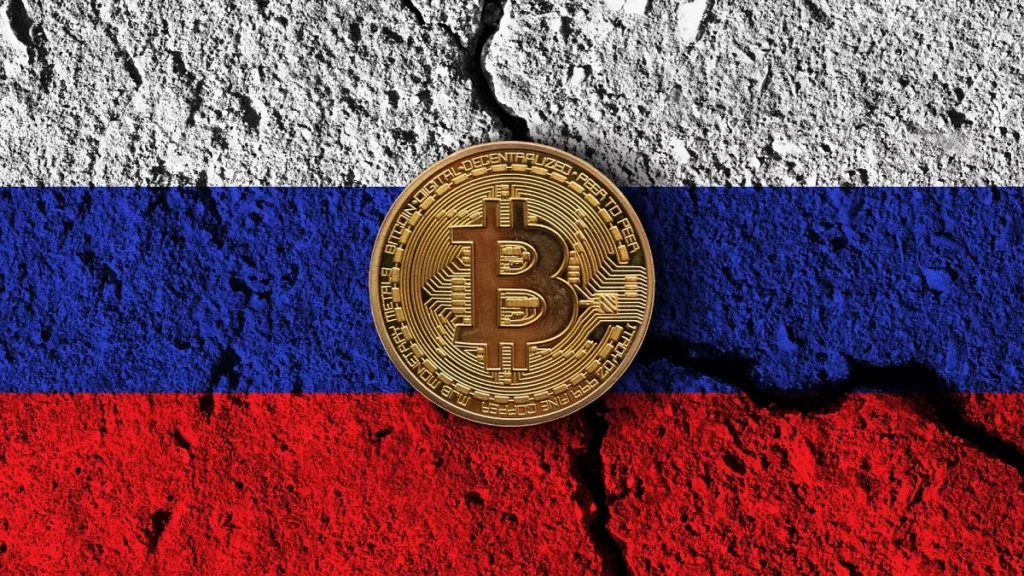Table of Contents
In the ever-evolving world of cryptocurrency, Russia has emerged as a significant player, particularly in the realm of crypto mining. Over the past few years, the country has steadily ramped up its mining activities, positioning itself as a formidable force in the global crypto landscape. This surge in crypto mining comes at a time when the geopolitical and economic environment is more volatile than ever. With sanctions, energy resources, and digital sovereignty in the mix, Russia’s intensifying focus on crypto mining raises crucial questions about the underlying motivations and the potential impact on both the global economy and the cryptocurrency market.

The Growth of Crypto Mining in Russia
Russia’s vast landmass, abundant energy resources, and cold climate make it an ideal location for crypto mining, an energy-intensive process that requires significant computational power. The country’s mining activities have grown exponentially in recent years, with some estimates suggesting that Russia now accounts for a significant share of the global Bitcoin hash rate, which measures the processing power of the Bitcoin network.
Several factors contribute to Russia’s burgeoning crypto mining industry:
- Energy Abundance: Russia is one of the world’s largest producers of natural gas and oil, providing a cheap and plentiful energy source for crypto miners. This energy surplus has made it economically viable for large-scale mining operations to set up shop in the country, particularly in regions like Siberia where electricity costs are low and temperatures are conducive to cooling mining rigs.
- Technological Expertise: Russia has a rich history of technological innovation and engineering prowess. This expertise has translated into the development of sophisticated mining hardware and software, further bolstering the country’s mining capabilities.
- Government Support: Although the Russian government has had a somewhat ambivalent relationship with cryptocurrency, there has been a notable shift in recent years. The Kremlin has begun to recognize the potential of crypto mining as a source of revenue, particularly in light of the economic pressures brought on by international sanctions. This has led to a more favorable regulatory environment for mining activities, with authorities offering incentives such as tax breaks and subsidies to attract investment.

Geopolitical and Economic Context
Russia’s increasing focus on crypto mining cannot be viewed in isolation—it is deeply intertwined with the country’s geopolitical and economic strategies. Since the annexation of Crimea in 2014, Russia has faced a barrage of sanctions from Western countries, particularly the United States and the European Union. These sanctions have targeted key sectors of the Russian economy, including finance, energy, and defense, severely restricting Russia’s access to global markets and capital.

In response, Russia has sought to reduce its dependence on the U.S. dollar and the Western financial system. Crypto currency, with its decentralized and borderless nature, offers an attractive alternative. By boosting its crypto mining activities, Russia can potentially generate significant revenue that is not subject to traditional financial controls. This move can be seen as part of a broader strategy to develop a parallel financial system that operates outside the purview of Western influence.
The Role of Sanctions and Digital Sovereignty
International sanctions have had a profound impact on Russia’s economy, leading to a sharp devaluation of the ruble and significant capital flight. However, they have also spurred the Russian government to pursue digital sovereignty more aggressively. The concept of digital sovereignty refers to a country’s control over its own digital infrastructure, data, and technologies, free from external interference.
Cryptocurrency, particularly Bitcoin, aligns with this vision of digital sovereignty. By mining Bitcoin and other cryptocurrencies, Russia can accumulate a reserve of digital assets that are beyond the reach of sanctions. These assets can be used to facilitate international trade, bypassing traditional banking systems that are often subject to sanctions and restrictions.
Environmental and Economic Implications
While Russia’s crypto mining boom offers economic and strategic advantages, it also raises concerns, particularly regarding environmental impact. Crypto mining is notoriously energy-intensive, and the carbon footprint associated with large-scale mining operations is significant. In a world increasingly focused on sustainability and reducing carbon emissions, Russia’s expansion of crypto mining could face international scrutiny.
Domestically, the environmental impact could also become a contentious issue. As mining operations expand, there is a risk of increased energy consumption leading to higher carbon emissions, particularly if the energy used comes from fossil fuels. This could undermine Russia’s commitments to international climate agreements and exacerbate environmental degradation in regions where mining is concentrated.
Economically, while crypto mining can generate revenue and create jobs, it also carries risks. The volatility of crypto currency prices means that mining profits can fluctuate dramatically. A sudden drop in Bitcoin’s value, for example, could render mining operations unprofitable, leading to job losses and economic disruption in regions heavily reliant on mining.

Global Repercussions and the Future of Crypto Mining in Russia
Russia’s growing influence in the crypto mining sector could have significant global repercussions. As one of the world’s largest energy producers, Russia’s actions could shape the future of crypto currency mining, particularly in terms of energy consumption and the global hash rate distribution.
If Russia continues to expand its mining activities, it could lead to greater centralization of the Bitcoin network, with a few key players controlling a large portion of the mining power. This could pose challenges to the decentralization ethos that underpins Bitcoin and other crypto currencies.